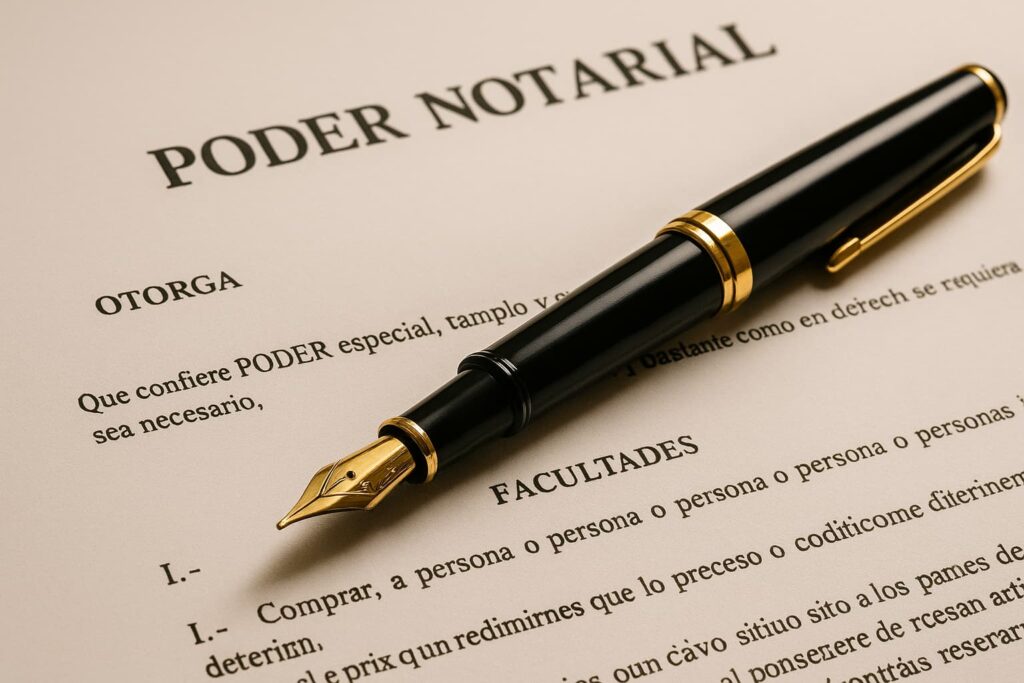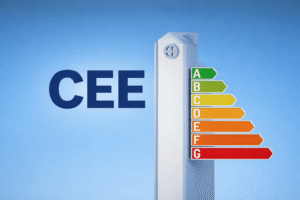How does making a power of attorney to buy property in Spain work?
A "poder notarial" (or "poder especial" in Spanish), also known as "procuration" in French or "power of attorney" in English, is an official legal document allowing a person (the principal) to authorize another person (the attorney) to act on their behalf to carry out specific actions.
In the context of real estate purchase in Spain, a notarized power of attorney is a practical, secure, and often essential tool – especially if you cannot travel to sign all the necessary documents.
This document allows you to make a real estate purchase remotely, from your couch, from France, Qatar, or Cambodia, completely legally. Terreta Spain takes care of everything for you, from providing you with a power of attorney template to sending it to the notary, for a 100% turnkey purchase, without stress or travel.
We explain everything to you, step by step.
What is a power of attorney used for in Spain?
The power of attorney allows a legal representative (agent) — often a real estate advisor or a lawyer — to act on your behalf within a strictly defined framework.
In the context of a real estate purchase, this generally includes:
- Buying a property in your name (signing the deed of sale at the notary).
- Negotiating the terms of the contract (price, payment terms, etc.).
- Subscribing to or canceling subscriptions to essential services: water, electricity, gas, Internet.
- Opening a bank account in Spain.
- Requesting your NIE (Número de Identificación de Extranjero), which is mandatory for any tax operation.
- Sign reservation or deposit contracts.
- Establish a mortgage, if necessary.
- Appear before a notary to sign the mortgage deed.
Concrete example of a power of attorney: model used by Terreta Spain
Here is an overview of the content of our power of attorney model:
The principal gives special power to Mr. / Mrs. _______ (here, we generally include several members of the Terreta Spain team), so that they can act individually or together, on their behalf, to carry out all the legal and administrative procedures related to the real estate purchase: signing of the deed, NIE application, notarial procedures, utility services, bank loans, etc.
This power is special, broad and sufficient, in accordance with Spanish law. It also authorizes the agent to act even in the event of conflicts of interest (e.g., self-contracting).
Where and how to sign the power of attorney?
You have several options:
1. At a notary's office in Spain
This is the simplest and fastest method. You can go to Spain and sign the power of attorney directly at a local notary's office.
2. From your country of origin
If you are in France, Belgium, Switzerland, the Netherlands or elsewhere, you can sign the power of attorney:
the process is longer and more complex, as it involves:
- creating the power of attorney
- having it apostilled (to give the notary's signature international validity)
- having it translated
- then having it apostilled again (to give the translation international validity)
This can easily take 1 month.
In detail, you can do it:
- At the Spanish embassy or consulate.
- At a local notary's office (e.g., French notary) : in this case, the document must:
- Be apostilled by the Court of Appeal (see below).
- Be officially translated into Spanish by a sworn translator.
The apostille: what is it for?
The Hague apostille is an official stamp that certifies that a document signed in one country is valid abroad. If you sign a power of attorney outside of Spain, this stamp is mandatory for the document to be recognized by a Spanish notary.
Translation: mandatory if the document is not in Spanish
The Spanish notary, like the other parties involved (seller, lawyer, etc.), must exactly understand the contents of the document. If the power of attorney is written in another language (e.g., French), an official translation into Spanish is mandatory.
The translation must be carried out by a sworn translator, who will affix their signature and stamp.
How much does a power of attorney cost?
The costs can vary depending on the method chosen:
- Spanish notary: between €40 and €100.
- Embassy / Consulate: depending on the country, often in the same range.
- Local notary + apostille + translation: this can cost between €100 and €250, depending on the service providers.
Can a power of attorney be cancelled?
Yes. A power of attorney is revocable at any time. To cancel it, simply:
- Go to a notary to sign a revocation.
- Notify the agent.
Why entrust your power of attorney to Terreta Spain?
Signing a power of attorney with Terreta Spain allows you to:
- To save time (avoid several unnecessary trips).
- To secure the process with an experienced team.
- To have a local contact who acts on your behalf, in complete transparency.
In summary
| Element | Detail |
|---|---|
| Spanish name | Poder Notarial |
| English name | Power of Attorney |
| Signed by | The principal (buyer) before a notary |
| What for? | To sign deeds, apply for the NIE, manage subscriptions, open an account, etc. |
| Where to sign it? | At a Spanish notary, consulate, or local notary with an apostille |
| Approximate cost | Between €40 and €250 depending on the method |
| Translation? | Yes, mandatory if the document is in French or English |
| Validity period | Until expressly revoked |
Need help?
Important: this service is exclusively reserved for our clients under a search mandate.
If you are a Terreta Spain client with an active real estate search mandate, we will provide you with our "poder notarial" template, which you can forward to your notary. They can adapt it according to their drafting habits.
We also have reliable notary contacts in several cities, including Paris, and we support you in every step of the process: notary selection, appointment scheduling, information to provide, final text verification, etc.
Example: if you are completing the process from France, we will explain in detail the entire step-by-step process, up to the sending of the document to Spain.







